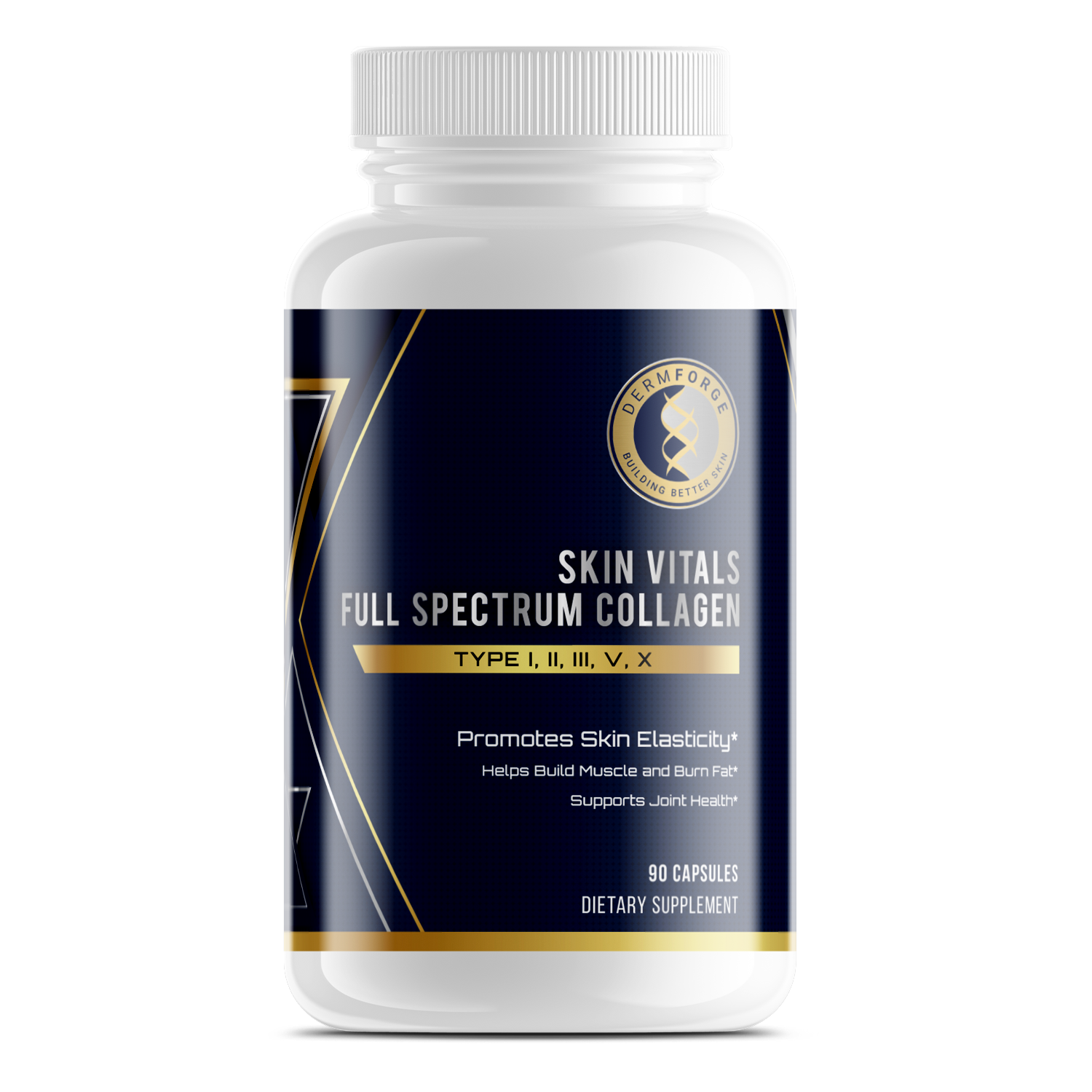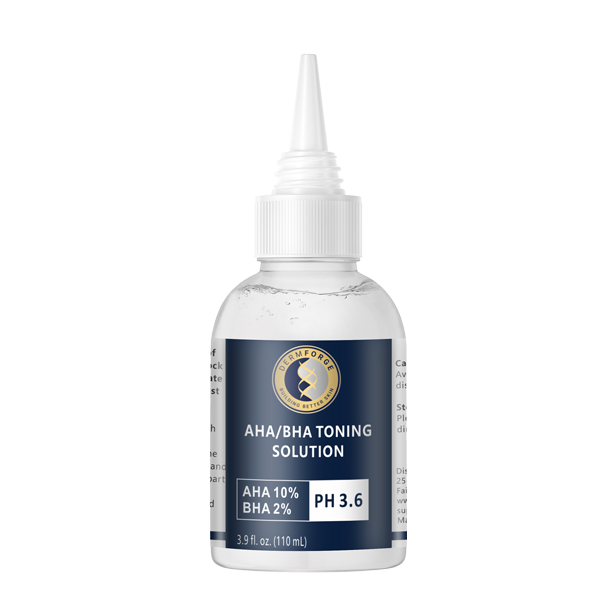In recent years, the beauty industry has experienced a significant shift toward personalized skincare regimens. Advancements in artificial intelligence (AI) and biotechnology have enabled brands to offer products tailored to your unique skin needs. This move away from generic solutions allows for more effective and targeted skincare routines.
AI-driven platforms analyze individual skin profiles to recommend customized products. By assessing factors like skin type, concerns, and environmental influences, these systems provide personalized suggestions. This technology enhances the precision of skincare recommendations, leading to better outcomes. For example, AI-powered tools can detect fine lines, wrinkles, and pores, offering insights into your skin's condition.
Biotechnology has also played a pivotal role in this transformation. Brands now utilize DNA-based skincare and microbiome research to develop products that cater to your specific genetic makeup and skin microbiota. This approach ensures that the formulations you use are compatible with your skin's unique characteristics. Consequently, you can achieve more effective and personalized skincare results.
Moreover, the personalized skincare market has seen substantial growth. The global market size reached $27.2 billion in 2024 and is projected to grow at a compound annual growth rate (CAGR) of 3.93%, reaching $39.2 billion by 2033. This trend reflects a growing consumer demand for customized skincare solutions that address individual needs.
As these technologies continue to evolve, you can expect even more refined and effective personalized skincare options. Embracing these innovations allows you to tailor your skincare routine to your unique needs, promoting healthier and more radiant skin.
The Rise of Personalized Skincare: Why One-Size-Fits-All No Longer Works
In recent years, the skincare industry has experienced a notable transformation. Consumers are moving away from generic products toward personalized skincare regimens that cater to individual needs. This shift stems from a growing understanding that each person's skin is unique. Factors such as genetics, environment, and lifestyle significantly influence skin health. Consequently, one-size-fits-all solutions often fall short in addressing specific concerns.
Advancements in technology have played a pivotal role in this evolution. Artificial intelligence (AI) and data analytics enable precise skin assessments, leading to tailored product recommendations. For example, AI-powered tools can analyze skin conditions and suggest suitable ingredients. This data-driven approach enhances the effectiveness of skincare routines. Moreover, it reduces the trial-and-error process many face when selecting products.
Consumer demand for customized skincare experiences has surged. A significant number of individuals now seek products that address their unique concerns, such as acne, aging, or hyperpigmentation. This desire for personalization reflects a broader trend across various industries, where consumers expect products and services tailored to their specific needs. In skincare, this means formulations that consider individual skin types and concerns.
Additionally, the rise of personalized skincare has led to a proliferation of brands offering customized solutions. These brands utilize online quizzes, virtual consultations, and AI-driven analyses to curate products suited to each user. This trend not only meets consumer expectations but also fosters a deeper connection between brands and their customers. By addressing individual needs, companies can build trust and loyalty, setting themselves apart in a competitive market.h
The movement toward personalized skincare signifies a departure from generic products. It embraces data-driven, customized solutions that cater to individual skin needs. As technology continues to advance, the trend toward personalization is likely to become even more prominent, reshaping the future of skincare.
How Dermatological Data is Collected and Analyzed for Skincare Personalization
Advancements in technology have revolutionized how we collect and analyze dermatological data for skincare personalization. Artificial intelligence (AI) skin analysis, genetic testing, and dermatologist assessments now play pivotal roles in crafting personalized skincare regimens.
AI skin analysis utilizes machine learning algorithms to evaluate high-resolution images of your skin. These systems can detect various conditions, from acne to signs of aging, by examining features like texture and pigmentation. This data-driven approach allows for precise recommendations tailored to your unique skin profile. For instance, AI can identify subtle nuances that might escape the human eye, leading to more effective treatments.
Genetic testing delves deeper by analyzing your DNA to uncover predispositions affecting skin health. By examining specific genetic markers, these tests can reveal tendencies toward collagen breakdown or heightened sensitivity to UV radiation. Armed with this information, skincare professionals can devise strategies that address these inherent risks, offering a proactive approach to maintaining skin vitality.
Despite technological advancements, dermatologist assessments remain integral to skincare personalization. Experienced dermatologists conduct thorough evaluations, considering medical history and lifestyle factors. Their expertise ensures that personalized skincare regimens are both safe and effective. Moreover, dermatologists can interpret AI and genetic data within the broader context of your overall health, providing a holistic approach to skincare.
The integration of these methods signifies a shift toward more personalized skincare solutions. By leveraging AI analysis, genetic insights, and professional evaluations, you can achieve a skincare routine that caters specifically to your needs. This comprehensive approach not only enhances the efficacy of treatments but also promotes long-term skin health, moving beyond generic solutions to truly individualized care.
Key Benefits of Personalized Skincare Regimens
Personalized skincare regimens offer several key benefits that can significantly enhance your skin's health and appearance. By tailoring products to your unique needs, you can achieve more effective results.
One major advantage is the improved effectiveness through targeted ingredients. When products address your specific skin concerns, they work more efficiently. For instance, if you struggle with acne, formulations containing salicylic acid can help clear your skin. Conversely, for dry skin, moisturizers rich in hyaluronic acid provide necessary hydration. This targeted approach ensures that each product contributes positively to your skincare goals.
Additionally, personalized regimens reduce the risk of irritation and allergic reactions. Generic products may contain ingredients unsuitable for your skin type, leading to adverse effects. By customizing your routine, you can avoid components that trigger sensitivities. This careful selection minimizes potential harm and promotes a healthier complexion.
Moreover, personalized skincare supports long-term skin health benefits and prevention strategies. Tailored routines can address early signs of aging, uneven pigmentation, or other concerns before they become pronounced. Proactively managing these issues helps maintain your skin's vitality over time. Furthermore, consistent use of suitable products strengthens your skin's barrier, protecting it from environmental stressors.
Incorporating personalized skincare regimens into your daily routine not only enhances immediate results but also contributes to sustained skin health. By focusing on your unique needs, you can achieve a complexion that looks and feels its best.
The Role of AI and Big Data in Skincare Customization
Artificial intelligence (AI) and big data are transforming skincare customization, offering tailored solutions for individual skin needs. AI-driven platforms analyze personal skin profiles to recommend products that align with your unique requirements. By examining factors like skin type, concerns, and environmental influences, these systems suggest personalized skincare regimens. This approach enhances the effectiveness of your skincare routine by aligning products with your specific needs.
Machine learning and predictive analytics have significantly impacted dermatology. AI algorithms can now process vast datasets, identifying patterns and predicting skin conditions with remarkable accuracy. For example, AI can assist in early detection of skin cancers by analyzing images for malignant features. This technology supports dermatologists in making more accurate diagnoses and developing effective treatment plans. Consequently, patients receive timely interventions, improving outcomes and satisfaction.
Moreover, AI-powered skin analysis tools have become more accessible to consumers. These applications evaluate images of your skin to provide insights into issues like acne, dryness, or aging signs. Based on this analysis, they recommend products or routines tailored to your skin's current condition. This empowers you to make informed decisions about your skincare, potentially saving time and resources.
Incorporating AI and big data into skincare customization signifies a shift toward more personalized and effective solutions. By leveraging these technologies, both consumers and professionals can address skin concerns more precisely. As AI continues to evolve, its role in skincare is likely to expand, offering even more sophisticated tools for maintaining skin health.
Challenges and Ethical Considerations in Personalized Skincare
Personalized skincare regimens offer tailored solutions for individual skin needs, but they also present challenges and ethical considerations. One primary concern is data privacy. When you share personal dermatological information, it's essential to know how companies store and protect this data. Some brands implement anonymization techniques, removing identifiable features from images before analysis. This approach ensures that only skin-related data is processed, safeguarding your privacy. Additionally, compliance with regulations like GDPR mandates secure handling of personal information, reinforcing trust between consumers and brands.
Another consideration is accessibility. Personalized skincare products often come at a higher price point, making them less accessible to consumers with limited budgets. This cost factor can restrict the availability of customized skincare solutions to a broader audience. However, some brands are working to democratize access by offering affordable, high-quality products. For instance, Bubble Skincare provides a range of items priced under $30, appealing to younger consumers seeking effective skincare without a hefty price tag.
Moreover, the rise of virtual consultations has expanded access to skincare personalization. Platforms offering online dermatologist consultations deliver tailored advice and product recommendations directly to your home. This approach not only saves time but also makes expert guidance more accessible, regardless of location.
In navigating personalized skincare, it's crucial to weigh these ethical considerations. Understanding how your data is used and advocating for accessible options ensures that skincare advancements benefit a wider audience while respecting individual privacy.
The Future of Personalized Skincare: Trends and Innovations
Advancements in biotechnology, DNA-based skincare, and microbiome research are revolutionizing personalized skincare regimens. By analyzing genetic markers, brands can identify predispositions to conditions like premature aging or hyperpigmentation. This genetic insight allows for the creation of products that target specific skin concerns, enhancing efficacy. For example, DNA-based skincare products are projected to reach a market size of $11.32 billion by 2031, reflecting growing consumer interest.
Microbiome research has also become a focal point in skincare innovation. Understanding the skin's unique microbial environment enables the development of products that maintain or restore microbial balance, promoting skin health. This approach addresses issues like acne and eczema by considering the skin's ecosystem. Companies are now creating formulations that support a healthy microbiome, leading to more effective skincare solutions.
Brands are leveraging dermatological data to develop hyper-personalized products. By collecting and analyzing data from various sources, companies can tailor products to individual needs, enhancing customer satisfaction. This data-driven approach allows for the customization of skincare routines, ensuring that each product addresses specific concerns. As a result, consumers receive more effective and personalized skincare solutions.
Incorporating these scientific advancements into skincare signifies a shift toward more personalized and effective solutions. As technology continues to evolve, the ability to create products tailored to individual genetic and microbiome profiles will likely become more refined. This evolution promises a future where skincare is not only personalized but also grounded in a deep understanding of each individual's unique biological makeup.
Conclusion
Embracing personalized skincare regimens offers numerous advantages for your skin's health and appearance. By customizing products and routines to your unique needs, you can achieve more effective and satisfying results.
One significant benefit is the enhanced efficacy of targeted treatments. When products are specifically formulated for your skin type and concerns, they address issues more precisely. This tailored approach leads to visible improvements, boosting your confidence in the regimen.
Additionally, personalized routines help prevent adverse reactions. Using products unsuitable for your skin can cause irritation or exacerbate problems. Customizing your skincare ensures compatibility, reducing the risk of negative effects.
Moreover, investing in a personalized skincare routine can be cost-effective over time. By selecting products that work harmoniously with your skin, you avoid the trial-and-error process. This targeted selection minimizes waste and unnecessary expenses.
Furthermore, personalized regimens adapt to your skin's changing needs. Factors like age, environment, and lifestyle can influence your skin's condition. A customized approach allows for adjustments, ensuring continuous care that evolves with you.
Incorporating personalized skincare regimens into your daily routine not only addresses current concerns but also promotes long-term skin health. By understanding and catering to your skin's unique characteristics, you pave the way for a healthier, more radiant complexion.






